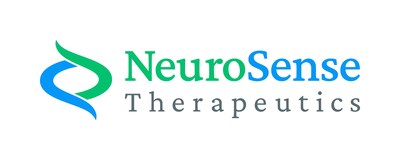NeuroSense Therapeutics Announces Positive Biomarker Data from ALS Phase 2b Clinical Trial
Rhea-AI Summary
NeuroSense Therapeutics (NASDAQ: NRSN) has announced positive 12-month iron biomarker data from its Phase IIb PARADIGM study of PrimeC in ALS patients. The results show significant improvements in iron regulation, aligning with previously reported 36% slower disease progression and 43% improved survival rates. Key findings include a decrease in ferritin levels and an increase in transferrin levels, indicating alleviation of ALS pathology. Iron levels remained stable over the 12-month dosing period, with a mean difference of 4.536 µmol/L compared to the placebo group. These positive changes in iron metabolism correlate with better functionality and survival rates in patients treated with PrimeC. The company is preparing to share additional data with the FDA and is in discussions with potential development partners for marketing opportunities.
Positive
- PrimeC demonstrated 36% slower disease progression and 43% improved survival rates in ALS patients
- Significant improvements in iron regulation biomarkers, aligning with better clinical outcomes
- Decrease in ferritin levels and increase in transferrin levels, indicating alleviation of ALS pathology
- Stable iron levels over 12-month dosing period, with a mean difference of 4.536 µmol/L compared to placebo
- Positive results support proceeding to Phase 3 testing of PrimeC in ALS
Negative
- None.
News Market Reaction 1 Alert
On the day this news was published, NRSN declined 10.50%, reflecting a significant negative market reaction.
Data tracked by StockTitan Argus on the day of publication.
12-month data demonstrated regulation of iron levels, which aligns with improved ALS survival and disease mitigation
Previous results showed PrimeC slowed disease progression by

ALS is a multifactorial disease in which iron and its related proteins play a critical role in its pathophysiology. These new results demonstrate the target engagement of PrimeC in iron regulation, which is linked to disease mitigation and improved survival. Iron metabolism is crucial in ALS pathology, with transferrin and ferritin being significant contributors to the progress of the disease. Iron accumulation in various brain regions of ALS patients has been linked to neuronal damage. Elevated ferritin levels, an indicator of iron storage, are consistently observed in ALS patients and are associated with reduced survival and potential oxidative stress. Conversely, lower levels of transferrin, the primary iron transport protein, contribute to iron dysregulation and disease progression.
The 12-month study results show a significant decrease in ferritin levels and a corresponding increase in transferrin levels, both indicating alleviation of the pathology. Iron levels remained stable over the 12-month dosing period, with a mean difference of 4.536 µmol/L (
These positive changes in iron metabolism align with improved clinical outcomes. Patients on PrimeC maintained better functionality and survival rates compared to those on placebo.
"The 12-month results from the PARADIGM Phase IIb study are encouraging, showing slowing of disease progression and improved survival outcomes," said Merit Cudkowicz, M.D., M.Sc., Chair of Neurology and Director of the Sean M. Healey & AMG Center for ALS at Massachusetts General Hospital. "This new analysis highlights PrimeC's ability to regulate the iron panel in people living with ALS, underscoring the drug's target engagement. These findings strongly support the proceeding to phase 3 testing of PrimeC in ALS."
The Company is currently compiling additional data to share with the FDA for discussion to determine the clinical and regulatory path forward. Additionally, the Company is continuing advanced discussions with several potential development partners to explore marketing opportunities following the potential completion and approval of PrimeC for ALS.
About ALS
Amyotrophic lateral sclerosis ("ALS") is an incurable neurodegenerative disease that causes complete paralysis and death within 2-5 years from diagnosis. Every year, more than 5,000 people are diagnosed with ALS in the
About ALSFRS-R
Disease progression is measured by the ALS Functional Rating Scale-Revised (ALSFRS-R), which is the most widely used ALS tracking tool accepted by the FDA, utilized by neurologists treating ALS patients, in clinical trials, and by other regulators to determine disease progression. It tracks 12 changes in a person's physical abilities over time including functions such as: speech, walking, climbing stairs, dressing/hygiene, handwriting, turning in bed, cutting food, salivation, swallowing, and breathing. A single point change on the ALSFRS-R has a significant impact on ALS patients, such as the transition from independent feeding to requiring assistance or independent breathing to needing to use a machine ventilator.
About PARADIGM
PARADIGM is a prospective, multinational, randomized, double-blind, placebo-controlled Phase 2b (NCT05357950) clinical trial of PrimeC in ALS. The trial included 68 participants living with ALS in Canada, Italy, and Israel.
As previously reported, in the 6-month double-blind segment of the trial, the data showed clinically meaningful signs of efficacy with a
About PrimeC
PrimeC, NeuroSense's lead drug candidate, is a novel extended-release oral formulation composed of a unique fixed-dose combination of two FDA-approved drugs: ciprofloxacin and celecoxib. PrimeC is designed to synergistically target several key mechanisms of ALS that contribute to motor neuron degeneration, inflammation, iron accumulation and impaired ribonucleic acid ("RNA") regulation to potentially inhibit the progression of ALS. NeuroSense completed a Phase 2a clinical trial which met its safety and efficacy endpoints including reducing functional and respiratory deterioration and statistically significant changes in ALS-related biological markers indicating PrimeC's biological activity. PrimeC was granted Orphan Drug Designation by the
About NeuroSense
NeuroSense Therapeutics, Ltd. is a clinical-stage biotechnology company focused on discovering and developing treatments for patients suffering from debilitating neurodegenerative diseases. NeuroSense believes that these diseases, which include amyotrophic lateral sclerosis (ALS), Alzheimer's disease and Parkinson's disease, among others, represent one of the most significant unmet medical needs of our time, with limited effective therapeutic options available for patients to date. Due to the complexity of neurodegenerative diseases and based on strong scientific research on a large panel of related biomarkers, NeuroSense's strategy is to develop combined therapies targeting multiple pathways associated with these diseases.
For additional information, we invite you to visit our website and follow us on LinkedIn, YouTube and X. Information that may be important to investors may be routinely posted on our website and these social media channels.
Forward-Looking Statements
This press release contains "forward-looking statements" that are subject to substantial risks and uncertainties. All statements, other than statements of historical fact, contained in this press release are forward-looking statements. Forward-looking statements contained in this press release may be identified by the use of words such as "anticipate," "believe," "contemplate," "could," "estimate," "expect," "intend," "seek," "may," "might," "plan," "potential," "predict," "project," "target," "aim," "should," "will" "would," or the negative of these words or other similar expressions, although not all forward-looking statements contain these words. Forward-looking statements are based on NeuroSense Therapeutics' current expectations and are subject to inherent uncertainties, risks and assumptions that are difficult to predict and include statements regarding PrimeC as a potential treatment for people with ALS. Further, certain forward-looking statements are based on assumptions as to future events that may not prove to be accurate. The future events and trends may not occur and actual results could differ materially and adversely from those anticipated or implied in the forward looking statements. These risks include the risk that the Company will not enter into an agreement with a development partner at all or on favorable terms; unexpected R&D costs or operating expenses, a delay in the reporting of additional results from PARADIGM clinical trial, a delay in a Phase 3 trial for PrimeC in ALS, the timing of expected regulatory and business milestones, risks associated with meeting with the FDA to determine the best path forward following the results from PARADIGM clinical trial, including a delay in any such meeting; the potential for PrimeC to safely and effectively target ALS; preclinical and clinical data for PrimeC; the uncertainty regarding outcomes and the timing of current and future clinical trials; timing for reporting data; the development and commercial potential of any product candidates of NeuroSense; the ability of NeuroSense to remain listed on Nasdaq; and other risks and uncertainties set forth in NeuroSense's filings with the Securities and Exchange Commission (SEC). You should not rely on these statements as representing our views in the future. More information about the risks and uncertainties affecting NeuroSense is contained under the heading "Risk Factors" in the Annual Report on Form 20-F filed with the Securities and Exchange Commission on April 4, 2024 and NeuroSense's subsequent filings with the SEC. Forward-looking statements contained in this announcement are made as of this date, and NeuroSense undertakes no duty to update such information except as required under applicable law.
Logo - https://mma.prnewswire.com/media/1707291/NeuroSense_Therapeutics_Logo.jpg
![]() View original content:https://www.prnewswire.com/news-releases/neurosense-therapeutics-announces-positive-biomarker-data-from-als-phase-2b-clinical-trial-302212321.html
View original content:https://www.prnewswire.com/news-releases/neurosense-therapeutics-announces-positive-biomarker-data-from-als-phase-2b-clinical-trial-302212321.html
SOURCE NeuroSense







